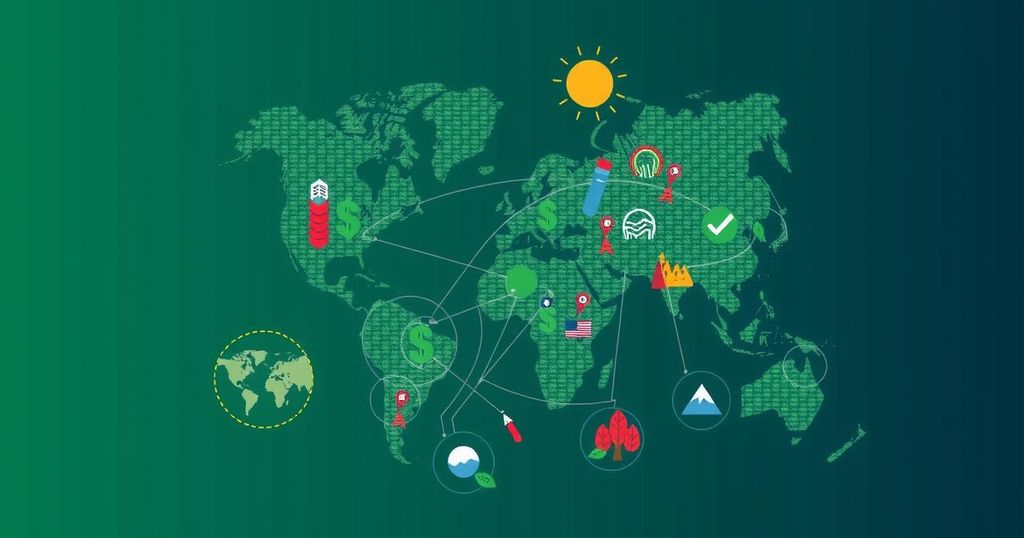JBS seeks public funding to combat climate change, claiming agriculture has potential for carbon capture but faces criticism for high emissions. The company’s CEO emphasizes the need for investment, yet livestock farming significantly contributes to Brazil’s greenhouse gas output. Experts argue investments should focus on sustainable practices rather than expanding traditional practices. Recent reports show increasing emissions from agriculture, highlighting the urgency for effective climate solutions.
JBS, the world’s largest meatpacker, is advocating for increased public investment to address climate change, claiming that only four percent of climate finance currently targets agriculture and food systems. Global CEO Gilberto Tomazoni highlighted agriculture’s potential for carbon capture, estimating that transforming this sector would require $300 to $350 billion. Despite this plea, the livestock industry remains a significant contributor to Brazil’s greenhouse gas emissions, responsible for 28 percent of the country’s total emissions, largely due to methane released by cattle and deforestation for ranching. The industry’s push for more funds coincides with the G20 discussions, where agribusiness aims to position itself as a solution to climate issues, despite many scientists arguing that these claims are misleading. Tomazoni led the B20 Food Systems and Sustainable Agriculture Task Force, advocating for recommendations that align with agribusiness interests and emphasizing productivity growth without addressing the urgent need to reduce meat consumption. Although some recommendations were adopted by the G20 Agriculture Working Group, experts assert that any investments should prioritize sustainable practices over traditional livestock farming, which contributes disproportionately to environmental harm. A recent report showed a record increase in greenhouse gas emissions from Brazilian agriculture, underscoring the need for solutions that mitigate agriculture’s environmental impact rather than promote further growth in livestock production.
The discussion surrounding JBS’s request for public funding to combat climate change highlights the broader issue of agricultural contributions to global emissions, particularly in Brazil. Livestock farming is a significant contributor to greenhouse gases such as methane. As JBS seeks to reframe the narrative around agriculture’s role in climate solutions, it faces criticism from environmental experts who argue that the sector should focus on more sustainable farming methods. This issue is particularly pertinent as global leaders convene to discuss agricultural strategies amid rising emissions and deforestation rates.
In summary, JBS’s push for increased funding to tackle climate change raises critical questions about the agricultural sector’s real impact on the environment. While advocating for investments in sustainable practices, the company must also address its significant role in greenhouse gas emissions and deforestation. The agricultural sector’s engagement in G20 discussions reflects a broader trend of seeking to position itself as part of the climate solution narrative, but true change will require a shift towards more sustainable farming practices that address consumption and environmental impacts directly.
Original Source: www.desmog.com






